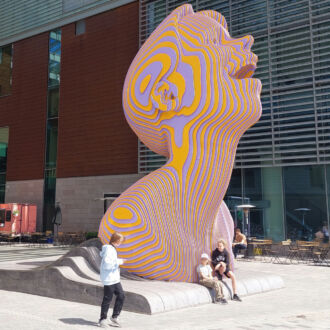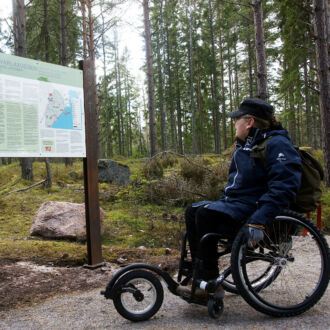The use of Easy Language is growing across various sectors. It has been promoted in Finland and the other Nordic countries for several decades, in contrast to many other European countries where the concept is not as established.
Easy Language or Easy-to-Read Language means language that is simpler in content, vocabulary and structure than standard language. Leealaura Leskelä is development manager at the Finnish Centre for Easy Language, “We have been using Easy Language in Finland for a very long time,” she says. She would still like to see more official recognition in national legislation.
Since 2000, the Centre for Easy Language in Finland has advanced communication, information and culture in Easy Finnish, operating under the Finnish Association on Intellectual and Developmental Disabilities. LL-Center, the Swedish-language counterpart, was founded in 2001. (Finnish and Swedish are both official languages in Finland.)
Current Finnish legislation covers technical accessibility rather than cognitive accessibility. It does not address how much the authorities should utilise Easy Language in official communications.
Growing demand

Easy Language content in Finland includes a range of literature.Photo: Emmi Korhonen/Lehtikuva
An estimated 650,000–750,000 people in Finland need Easy Language in their everyday lives. The largest groups are the elderly, people with disabilities and immigrants for whom Finnish or Swedish is a new language.
Easy Language content in Finland includes a range of literature; online and television news by the Finnish national broadcasting company Yle; and newspapers in Easy Finnish (selkosuomi) and Easy Swedish (lätt svenska).
Many Finnish authorities also provide services in Easy Language. One example was the Finnish Institute for Health and Welfare’s information during the COVID-19 pandemic. “Easy Language communications in a crisis is extremely important,” says Leskelä.
While the availability of both Easy Finnish and Easy Swedish is improving, there are differences in their availability. Johanna von Rutenberg is a specialist and team leader at LL-Center. “Many authorities and others communicating on the national level have realised the importance of Easy Language,” she says. “However, there is generally much more material in Easy Finnish than in Easy Swedish. Apart from fiction, content published in Sweden rarely works here.”
More research and services

Easy Language was first defined in Finland in the 1990s and later expanded in more detail.Photo: Roni Rekomaa/Lehtikuva
Easy Language was first defined in Finland in the 1990s and later expanded in more detail, with 96 criteria to support content production. The Finnish Centre for Easy Language also grants a free Easy Language logo for materials that follow certain principles.
Immigrants often turn to services in English, as Easy Language availability cannot be guaranteed. Dental-care student Momota Hosna Mithi began studying Easy Finnish in 2021 after finding standard Finnish studies too difficult. Now she can handle everyday interactions in Finnish.
Mithi borrows Easy-to-Read books from the library and watches Easy Finnish news and series. She would like to see increased Easy Language services in official contexts. “Better availability would improve foreigners’ chances of learning Finnish and working in the country,” she says.
Work continues

The need for Easy Language continues to grow.Photo: LL-Center
Leskelä wrote her doctoral thesis on spoken Easy Language between people with disabilities and the professionals who work with them. Her 2022 dissertation was, she believes, the first in the world on spoken Easy Language.
In her study, she found out that simplifying spoken language is not easy, even for professionals. “Yet I saw many successful examples of how to apply easy spoken language, use it to solve major difficulties in understanding and include a person with disabilities in the discussion,” she says. Although she analysed conversations involving people with disabilities, many of her observations apply to all interactions that could include Easy Language.
There has been active collaboration with Sweden over the years, but more recently it has shifted towards continental Europe, especially Germany, says Leskelä.
Because the need for Easy Language is growing, the Finnish Centre for Easy Language is working on criteria for professionals in the field. “At the moment, there are no official titles for Easy Language professionals, but we need a shared understanding of what it means to be an expert in it,” Leskelä says.
By Annika Rautakoura, October 2024











